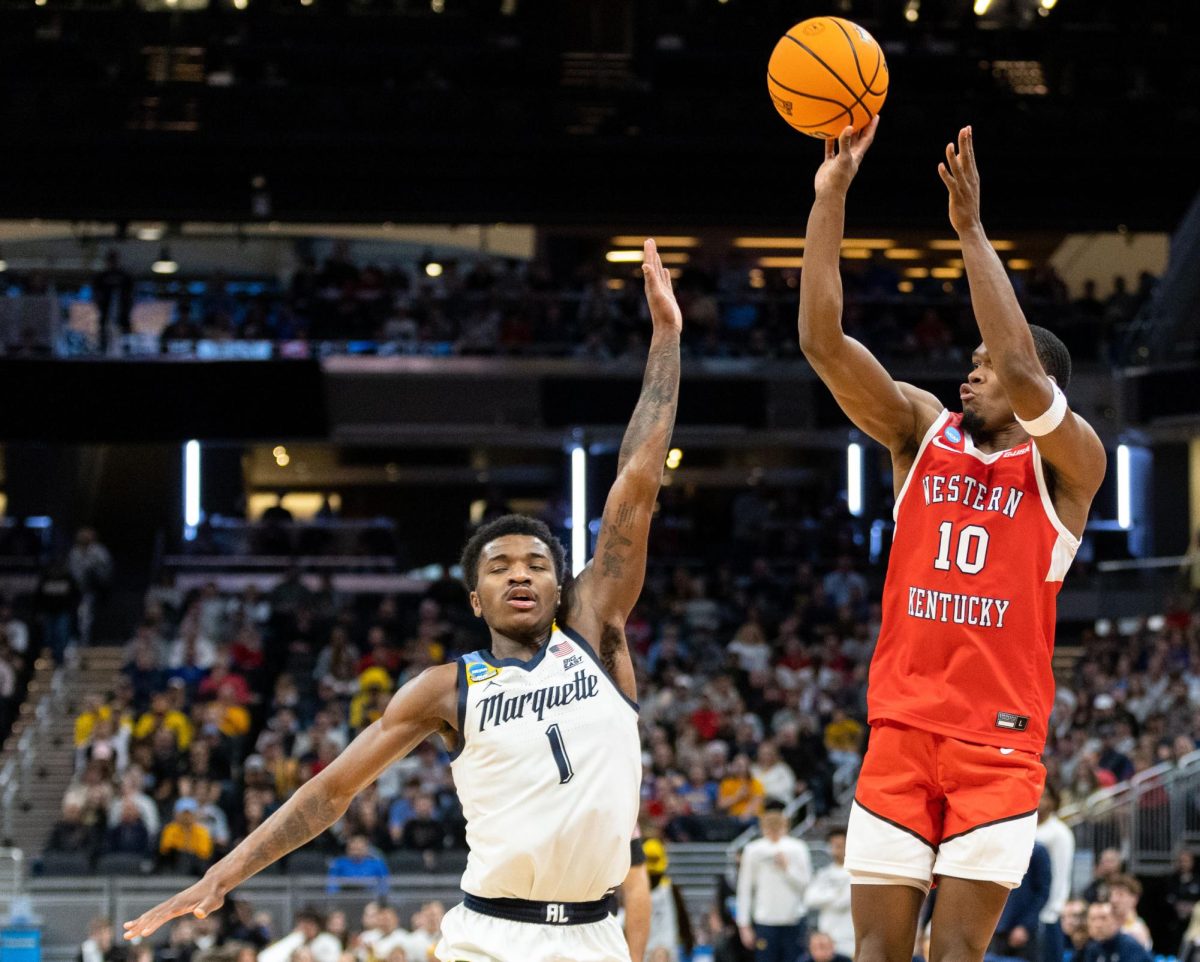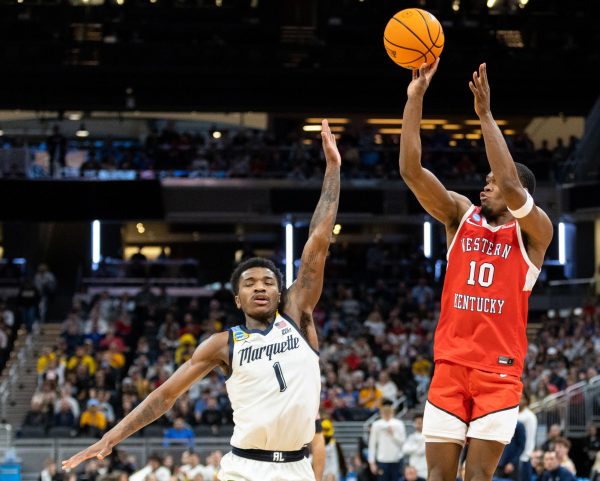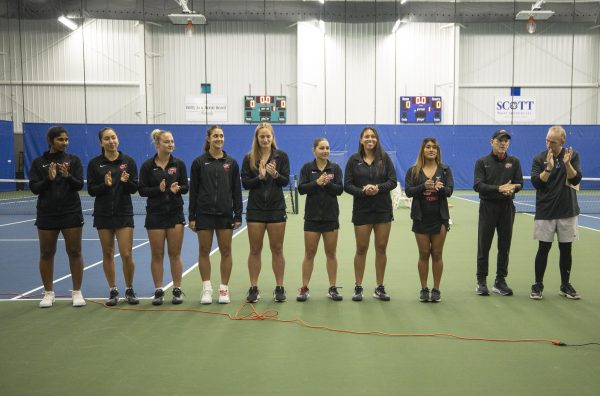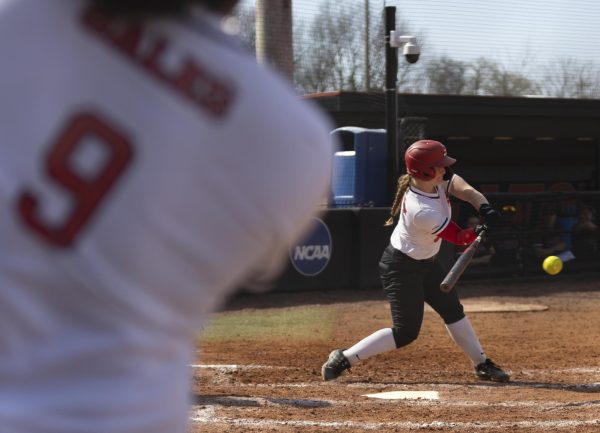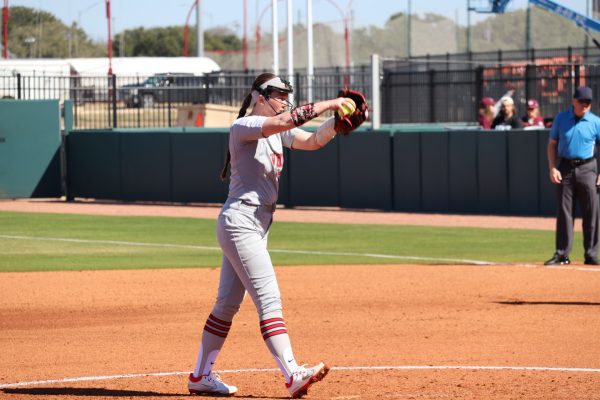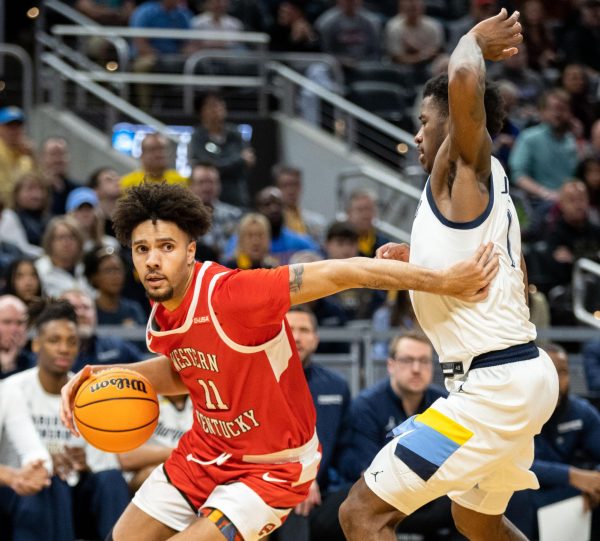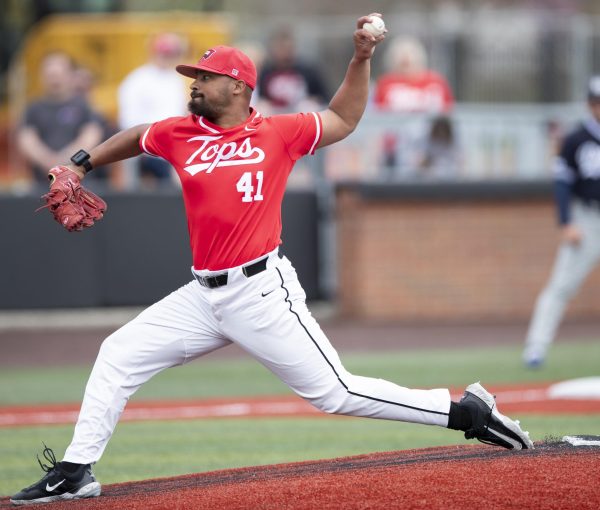Taggart’s $475K deal draws praise, criticism
WKU Head Coach Willie Taggart gets doused in Gatorade following WKU’s first home football victory since 2008 with a 42-23 win on Homecoming over Louisiana-Lafayette. Taggart eventually guided the Toppers to a 7-5 regular season record and was rewarded on Wednesday with a new four-year contract worth $475,000 per year.
December 9, 2011
One of Willie Taggart’s favorite saying in his time as WKU head coach has been that “nobody” has it better than his Toppers.
And after Taggart was given a contract with a $475,000 base salary on Wednesday, nobody on campus has it better financially than Taggart.
The second-year head coach will now make substantially more than President Gary Ransdell ($361,000), the university’s next-highest paid employee.
It was a move that had Faculty Regent Patti Minter questioning WKU’s priorities.
“The university has sent a message that values entertainment over education,” Minter said.
Taggart’s deal more than doubled his original $225,000 per year contract he signed when he was hired in November of 2009.
The deal is loaded with performance-based incentives for Taggart, including a 15 percent base salary increase should the Toppers win eight games in a single season.
Athletics Director Ross Bjork said Taggart’s new deal was “much deserved” in an athletic department release on Wednesday.
But Minter on Thursday afternoon said she had received emails from at least 50 faculty members who felt differently.
She said faculty was upset that Taggart was getting a 111 percent base salary increase while staff and faculty raises in recent years have been sparse.
“The state is funding us based on retention and graduation rates,” Minter said. “Who does that? This is the work of the faculty and the support staff.
“We’re delighted that athletics is an important part of our extracurricular activity here at WKU. But ‘extracurricular’ is really the key word.”
Taggart led the Toppers to a 7-5 record this season and a second-place finish in the Sun Belt Conference.
It was the WKU’s first winning season since becoming a full Football Bowl Subdivision member in 2009.
The Toppers also played eight televised games, which Senior Associate Athletics Director Todd Stewart said were “essentially eight three-hour commercials” for the school.
“Many people learn about universities through athletics,” Stewart said. “And we take that responsibility very seriously.
Taggart’s $225,000 salary in 2011 ranked 108th highest out of the 110 FBS head coaches whose salaries were reported by USA Today.
His new $475,000 base salary would rank as the 85th-highest of the coaches’ salaries listed in the report.
Stewart said the athletic department understood faculty frustrations but added that all salaries paid to coaches come from the athletic department budget.
“If the money wasn’t spent on salaries, it would be spent on something else in athletics,” Stewart said. “So it’s not money that’s being taken from any other group on campus.”
Per WKU protocol, the contract will be presented to the Executive Committee of the Board of Regents for review on Dec. 16, followed by submission to the full board for approval at its meeting on Jan. 20, 2012.
Staff Regent James Kennedy said on Thursday he doesn’t see any reason why Taggart’s deal wouldn’t be passed by the Regents.
“At the end of the day, I see this as WKU investing in its future, protecting an asset and keeping the ball rolling with a positive football program,” Kennedy said.
Meanwhile Minter said she’d like to see Taggart’s contract modified to “something that’s not insulting to the other employees” before the full Board votes in January.
“People feel that we have been utterly and totally treated as the least important part of this university,” Minter said, “when in fact this is the most important part of the university.”


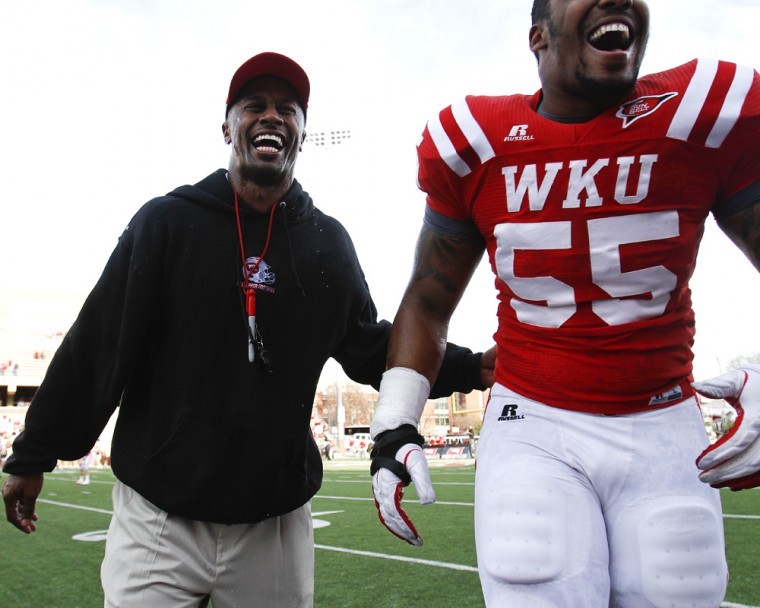









![Students cheer for Senator at Large Jaden Marshall after being announced as the Intercultural Student Engagement Center Senator for the 24th Senate on Wednesday, April 17 in the Senate Chamber in DSU. Ive done everything in my power, Ive said it 100 times, to be for the students, Marshall said. So, not only to win, but to hear that reaction for me by the other students is just something that shows people actually care about me [and] really support me.](https://wkuherald.com/wp-content/uploads/2024/04/jadenmarshall-1200x844.jpg)


